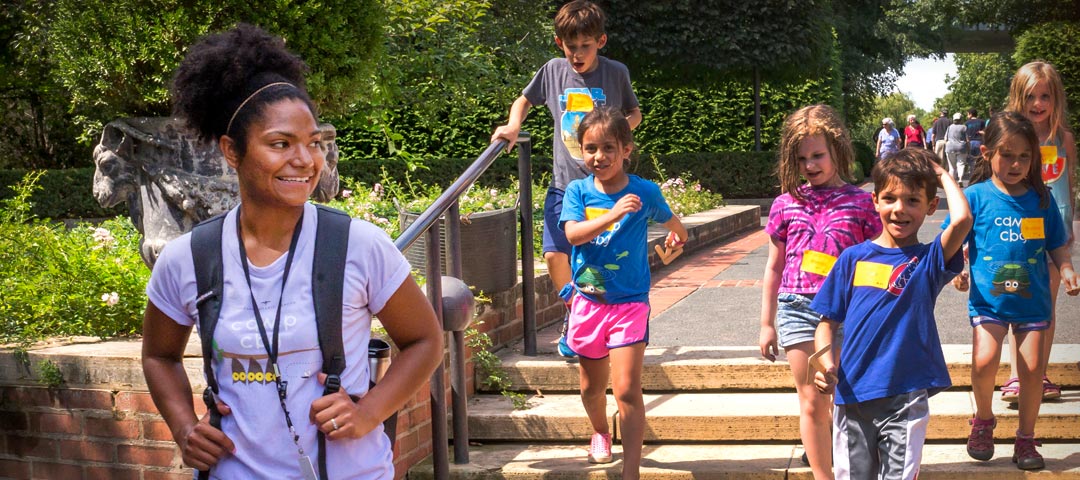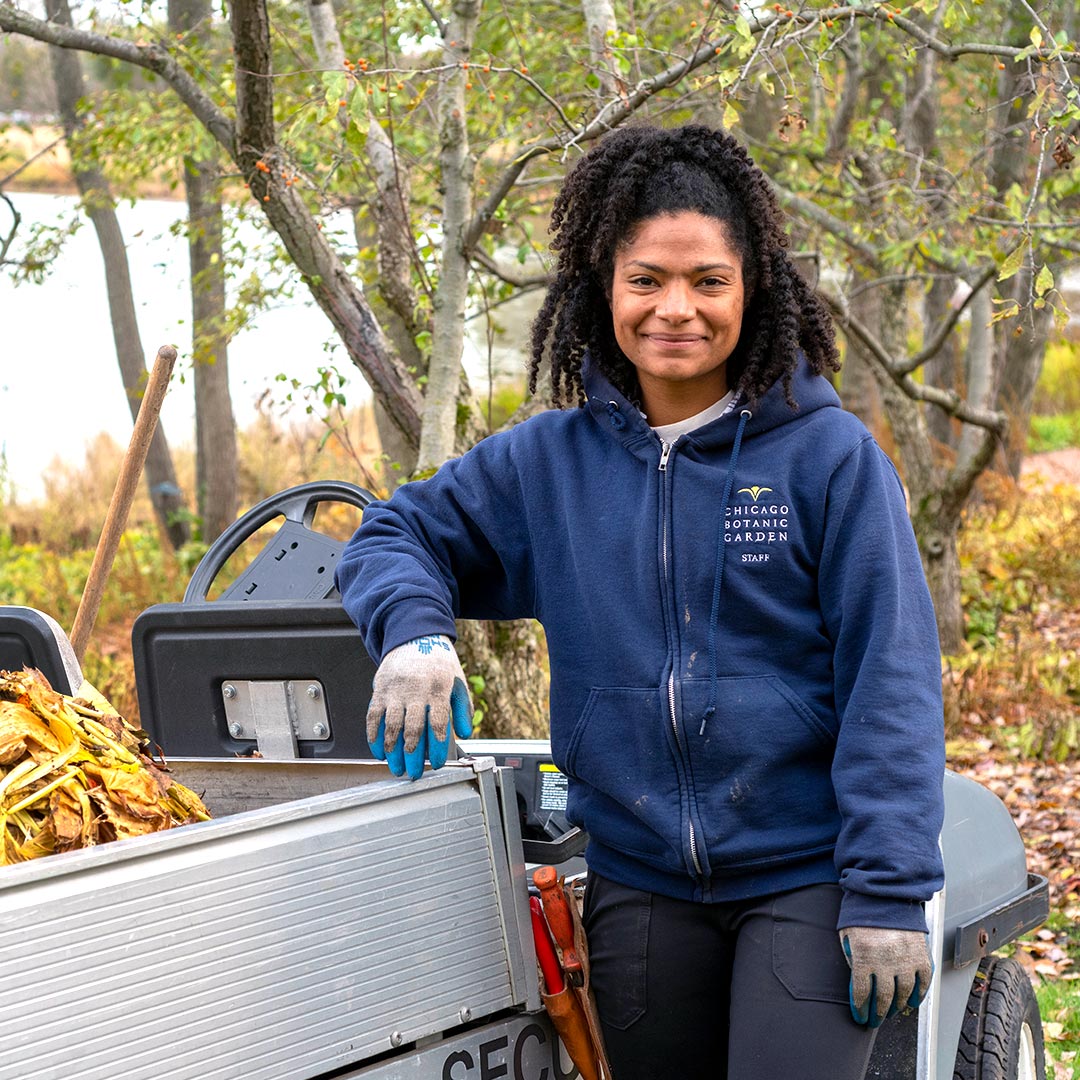

News
Garden Stories
How a Veteran Transformed Her Life
U.S. Navy veteran Anna Andersen is quick to tell you how the Chicago Botanic Garden’s impact on her life goes beyond the beauty of the plants to the nurturing she found in its Veteran Internship Program (VIP).
“I am grateful for the VIP and Garden for providing me direction into the horticulture profession and community. I have reaped the most benefits in a very personal way,” she said, adding that she has been “through a lot of emotional trauma, and the Garden saved me from darker places. I am fortunate to work in a place that has given me purpose, joy, and literally life.”
Andersen, 30, who began the VIP in summer 2016, now works full-time as an assistant horticulturist in the Lakeside Gardens. The job includes “beautifying…Making sure plants are healthy, as full as possible and true to the designer’s intentions. There’s a lot of weeding, pruning.”
VIP helped her transition from the military to the civilian world, she said, as well as “discover my passion for the outdoors and find mentors to guide me to be a more professional leader and demonstrate how to be a well-rounded person.”

Andersen credits the program’s emphasis on both hard skills (résumé writing, etc.) and soft skills (“like being a better communicator”) for her success. That includes completing a degree from George Williams College in Environmental Science and Sustainability, seasonal work in the Garden’s summer camp with the former manager of Youth and Family Programs, Amy Wells, and in the Elizabeth Hubert Malott Japanese Garden.
But it’s those “soft skills,” cultivated by members of the Garden’s team, that helped her deal “with a lot of problems I didn’t realize I was going to have and didn’t necessarily know how to deal with,” she said.

In the summer camps, for example, “Amy [Wells] knew what needed to get done, yet she still gave me opportunities to do it how I wanted to get it done. Which is different than the military. They just told you what to do and didn’t give you a reason for doing it.
“With Amy, I was able to see how she interacted with people, how she handled herself when she was talking to people and how she listened to people,” said Andersen. “I was able to observe what an effective listener and leader looks like. This is something I am still working on, but I think the VIP set me up for success by providing a good example for me.”
Dozens of military veterans have participated in the VIP since it was established in 2014, according to Alicia Green, coordinator of the Buehler Enabling Garden. Green, who also oversees the VIP Program, added, that Horticultural Therapy Services has always served the veterans population, mainly in VA hospitals. The department brainstormed other ways to reach and help the population and came up with the VIP. A federal grant allowed them to run a two-year pilot program, placing veterans with a Garden department—from accounting to construction-maintenance—for a paid 12-week internships.

